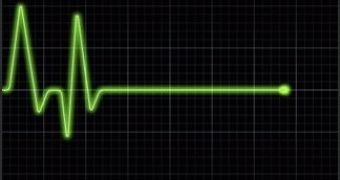This week records yet another major breakthrough event, as the University of Southampton in UK begins the world's biggest study on near-death experiences to date.
As a matter of fact, "begins" is not the most accurate choice, since the AWARE (AWAreness during REsuscitation) study is already past pilot phase. The respective stage has been conducted for 18 months at selected hospitals in UK, but from here on, the researchers want to include more UK centers in the project, as well as other European and North American ones. The focus of the international team of physicians and scientists is clinical death, consciousness and the human brain.
Dr. Sam Parnia, an expert in the field involving consciousness during clinical death and one of the study leaders, gives details: "Contrary to popular perception, death is not a specific moment. It is a process that begins when the heart stops beating, the lungs stop working and the brain ceases functioning – a medical condition termed cardiac arrest, which from a biological viewpoint is synonymous with clinical death. During a cardiac arrest, all three criteria of death are present. There then follows a period of time, which may last from a few seconds to an hour or more, in which emergency medical efforts may succeed in restarting the heart and reversing the dying process. What people experience during this period of cardiac arrest provides a unique window of understanding into what we are all likely to experience during the dying process."
Other recent study indicated that 10 to 20% of the people who suffer cardiac arrest and clinical death claim having lucid and clearly structured cognitive processes and often even memories related to their death experiences. The AWARE program will use top-notch technology in order to take this even further by studying the consciousness and the brain during the process of cardiac arrest and the truth value of the out-of-body phenomenon reports.
AWARE will be aided in its task by BRAIN-1 (Brain Resuscitation Advancement International Network – 1), a study consisting of physiological tests on patients who have suffered from heart failure and cerebral activity monitoring techniques that are set to help improve the psychological and medical care of such patients.

 14 DAY TRIAL //
14 DAY TRIAL //